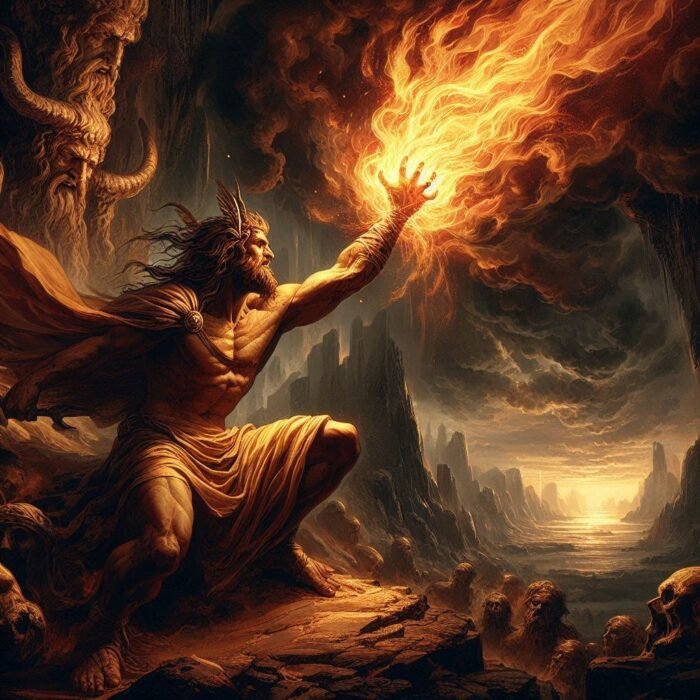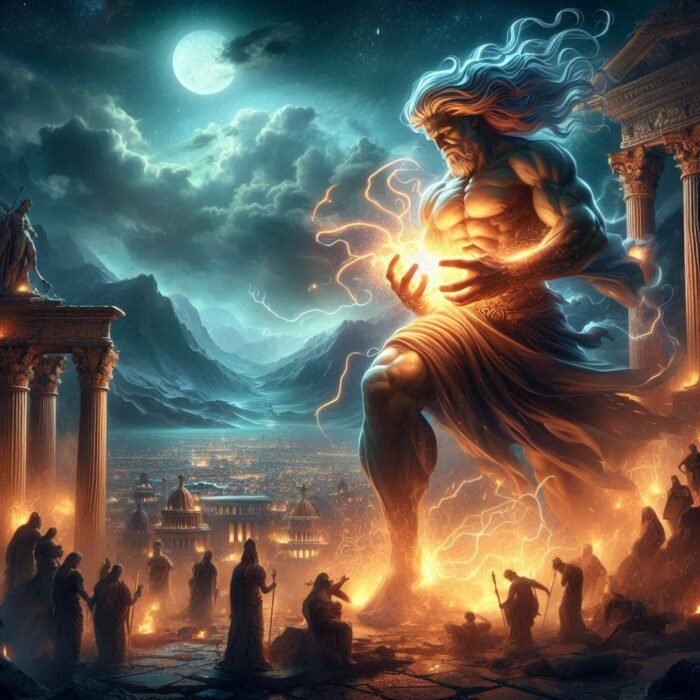Before Helen, before Klytemnestra, before Kerkee, there was Medea. And she wasn’t remembered for beauty, or war, or prophecy. She was remembered because she left no one untouched—not her father, not her brother, not her children, and not the man she gave everything to.
This is not a story of innocence lost. It is a story of love weaponized, of loyalty turned to vengeance, of a woman who gave more than anyone should. And when cast aside, she made sure everyone remembered what she was capable of. They call her a witch, a murderer, a monster. Perhaps she was all three. But she was also a queen, a daughter of the sun god Helios, a woman who chose—and when betrayed, she burned.
Origins


Medea was not born into softness. She came into the world at the edge of the known, in Colchis—a kingdom carved from wild mountains and dense forests, far from Athens’ marble halls or Olympus’ polished altars. To the Greeks, it was a land of mystery and menace. To her, it was home.
Her father, King Aeetes, was a man of cruelty more than kindness. Her mother, believed to be the Oceanid Idia, linked Medea to the divine. Through her father, she was descended from Helios, the sun god. Medea was not just royal—she was divine. She shared lineage with women whose names would terrify men across generations.
Her upbringing was steeped in ancient magic, in herbs that could heal or kill, in knowledge passed from god to daughter. She was quiet, measured, deliberate, never acting until she knew all the pieces. And when she did act, she never acted halfway.
Appearance


The Greeks called her beautiful, but it was a sharp, unforgettable beauty—dark hair cascading like a curtain, eyes deep and piercing, skin either pale or sun-kissed depending on the teller. She carried herself like someone untouchable, someone who didn’t belong in any court but could burn one down if necessary.
Medea’s presence was magnetic and dangerous. Her robes marked her as foreign, her adornments subtle but deliberate. She was not a bride, not a soft goddess of love—she was a curse, and the air changed wherever she went.
Nature of Medea
Before anything else, Medea was intelligent—not the kind that sought praise, but the kind that observed. She knew words, gestures, and silences. She was deliberate in love and devastating in vengeance. Betrayal did not make her scream; it made her plan. And when she struck, her blow was precise, unforgettable.
Loyal to those she loved, once betrayed, she became unstoppable. Medea understood emotion, not as weakness, but as power.
Powers
They called her a sorceress, but her magic was older, stranger, slower. It came from knowledge: the way plants breathed, roots tangled beneath the soil, the delicate balance between life and death. She could grind a flower into dust to heal, kill, or cloud the mind. She could disguise herself, twist time in dreams, and make a man forget his own name.
Her spells were quiet. Her weapons were choices. She understood fear as the first magic, belief as the second. Once someone believed in her power, they were already in her hands.
Jason’s Arrival
Jason arrived in Colchis not with an army, but with a ship—the Argo—and heroes whose names would echo through myth. He came for the Golden Fleece, guarded by Medea’s father and a sleepless dragon.
When he met Medea, something shifted. Some say love; others say the gods’ intervention. She chose him, betraying her father, her gods, and her homeland. Through her knowledge and power, Jason survived impossible trials. She saved him, and in doing so, gave him everything—her loyalty, her homeland, and her heart.
Medea’s First Betrayal
Once the trials were complete, her father hesitated. Medea recognized his deception. She acted: she helped Jason seize the fleece, and when her brother pursued them, she killed him, scattering his remains to buy their escape. Jason never asked; Medea never spoke of it.
Exile and Quiet
Medea and Jason returned as heroes, yet it was not enough. Medea orchestrated Pelias’ death to secure Jason’s throne, manipulating his enemies with her magic. Blood spilled, but Jason’s hands remained seemingly clean. Exiled, they found refuge in Corinth, building a home, having children. For a while, it seemed the fire had cooled.
The Betrayal That Broke Her
Jason’s ambition resurfaced. He sought to marry King Kreon’s daughter, Glauke, framing it as a political strategy. Medea, who had given everything for him, was discarded, erased. He believed she had softened with motherhood, that she had grown weak. He underestimated her.
Revenge That Froze the Gods


Medea did not argue. She did not beg. She acted. She sent Glauke gifts—silks, gold, a crown—that burned the girl alive. King Kreon touched her, and he, too, was consumed. Korinth was left in silence. And when Jason confronted her, she struck the final blow: their children were gone.
At last, she disappeared, carried by a chariot of dragons from Helios himself, beyond reach of men, gods, or grief. Jason was left alone, empty. He had won the Golden Fleece, led the greatest voyage of his age—but he was only a man who underestimated the woman who had given him everything.
Legacy of Medea
Medea vanished, yet she became a legend. Some say she married King Aegeus in Athens, others that she returned to Kolchis. Some whisper she never died at all, passing into the realm of magic where gods and monsters go.
To some, she is the monster, the child killer, the sorceress who burned a kingdom for revenge. To others, she is the survivor, the betrayed, the foreign wife who was used, discarded, and blamed.
In all versions, she is remembered. Terrible, beautiful, unforgettable—Medea endured, long after the heroes faded into dust.
Medea’s Enduring Influence
Medea did not vanish with her story. Beyond the myths of gods and heroes, she became a central figure of Greek tragedy, a template for playwrights and audiences alike. Euripides’ Medea turned her tale into a stage of human emotion—betrayal, rage, and vengeance brought to life. She taught the ancients about the power of love weaponized, the peril of underestimating a woman who gives all and asks nothing… until betrayal forces her hand.
Through theater, her presence lingered long after the events of myth faded. Medea became more than a character; she was a symbol of foreignness, of agency, of wrath, of survival. In every retelling, from stage to page, she reminded generations that myth is not just history but a mirror of human nature, of passions that can build kingdoms—or burn them.
Even today, Medea’s name resonates in literature, psychology, and art, a caution, a fascination, a study of influence and consequence, proving that the echoes of her power reach far beyond the myths themselves.
Go back to Greek mythology




















Comments